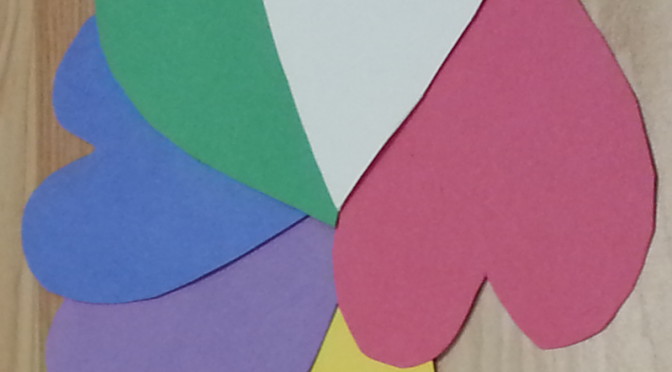Every time someone says “I love you,” it’s a quote.
This point came up in an English class I took here at DePaul. Lovers in the grips of new passions or in committed, long-established relationships yearn to make the old new again. They labor to capture the particularity of their emotions and the bonds they have forged with their significant others, spouses, partners, dears, sweethearts, darlings, little cabbages, or [insert your secret—and doubtless adorable—pet names here]. They strive to shuffle around the finite number of words in the world into unfamiliar arrangements—arrangements that excite and entice because of their unfamiliarity. This pressure to describe, to do their loves justice, might intensify around such occasions as Valentine’s Day.
One technique I use to brush aside my writerly angst about Valentine’s Day (“my words are so inadequate … how can I describe the indescribable?!”) is to think about how people express love in languages other than English. Even a direct translation of “I love you” resonates differently, to my ear, in different languages.
For instance, when someone says “I love you” in Spanish (Te amo) or Korean (사랑해), the subject of the sentence is understood, so there’s no need to include the “I.” In Spanish, as in Latin, the “o” ending in “amo” specifies who’s doing the loving; you can parse the verb as first person singular present active indicative. In Korean, the subject of the sentence is clear from context. The object of love, “you,” is also understood.
English isn’t like that. You have to spell it out, to say just what you mean, in subject-verb-object order: I. Love. You. If you eliminate the “I,” your reader could interpret it as a rhetorical choice. The phrase turns breezier, more informal. Love you. Should you add an exclamation point to complete the effect?
When I write love notes, I mix in my limited and imperfect knowledge of other languages. “Te echo de menos,” I might write—an idiomatic Spanish expression that means “I miss you” but could translate, literally, to “I throw you from less.” I quote Pablo Neruda, one of my favorite poets. Or I sprinkle in “자기야” (jagiya), a Korean term of endearment that literally translates to “self.” My own self. The “야” (ya) in itself conveys intimacy. Someone who knows me on a formal basis might address me as 하나씨 (Hanassi), attaching the honorific “씨” (ssi) to my first name. Someone who knows me very well, such as a family member or close friend, might call me 하나야 (Hanaya). Reader, I’m bringing you closer to me, I think, even if you don’t know it. I feel daring.
Borrowing from other languages—languages in which I will never achieve the fluency I have in English—helps me recognize that my words will never be adequate in any language … and that’s OK. I’m not out to pen the Great American Love Note. Na bharta (Telugu for “my husband,” though it can apparently also mean “my lord” or “my master”) would never expect that of me anyway.
What about you? In languages you know other than English, what are different words for “love?” How do people refer to their significant others? What are some pet names you’ve heard (or used)? Feel free to share your thoughts in the comments section!
Discover more from UCWbLing
Subscribe to get the latest posts sent to your email.




3 replies on “Love and Other Languages”
Your article reminded me of an animation created in 2012 by interns from South Korea, via IIT. You can view it on this blog article. http://michaelcnt.blogspot.com/2012/02/mentoring-offers-hope-and-opportunity.html
This link points to another heart graphic, also created by an intern. http://tinyurl.com/TutorMentorHeart-2012 This was done as an animation, but I’m not able to find the link.
Both convey the love and caring that is the glue in an on-going youth/volunteer match made possible by organized tutor/mentor programs.
I often feel constricted by the English language; and, I, too, often borrow from other languages to express myself. I am pleased that my attempts to incorporate non-English vocabulary into my dialogues are not “weird” or singular. It is comforting to be reminded that others in the world draw from many different resources to communicate.
Thank you for being daring, Hanaya. Vielen Dank!
In Polish, we say “Ja kocham ciebie” or the more informal “kocham cie”! A funny thing though is that my significant other speaks Russian and he says “Ya lyublyu tebya”, which sounds roughly like “I like you” in Polish. So you can imagine the confusion when he says that to me haha. I’m loving all the multilingual-friendly blog posts: I’d LOVE to see some more (see what I did there?)!